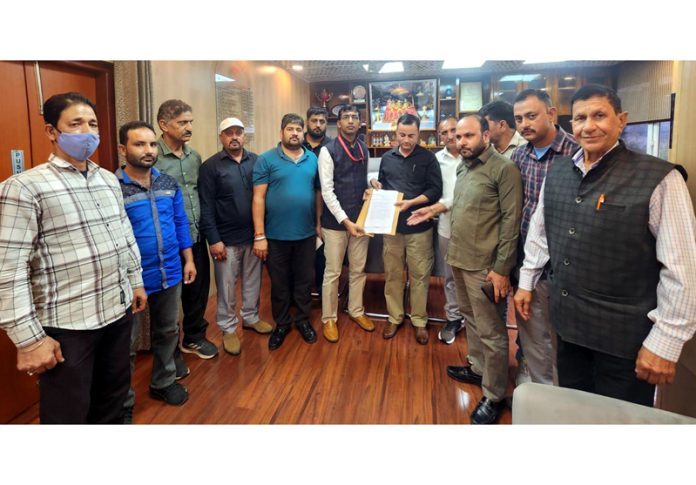
Excelsior Correspondent
REASI, Nov 10: In a significant move to address delays in the Tarakote-Sanjhichhat Ropeway Project, a deputation comprising members of the Panchayats of Hut, Akhli Bhutan, Garn, and Aghar Jitto, led by former Block Development Council Chairman of Katra, met with Anshul Garg, Chief Executive Officer (CEO) of Shri Mata Vaishno Devi Shrine Board (SMVDSB).
A memorandum was submitted to highlight the issues stalling the ropeway project, urging for its immediate completion. The delegation included several former sarpanchs and panchs from these Panchayats, emphasizing the need for swift action on the project, initially launched to improve connectivity and promote local development.
The delegation expressed concern over alleged vested interests hindering the ropeway’s progress. According to the deputation, some groups opposed to the project are resisting any development in this area, despite the broader benefits expected for local residents. They urged the Shrine Board to prioritize equitable development beyond Katra and Purana Darur and highlighted that all technical and safety standards had been carefully evaluated before the project was launched, with the current Tarakote-Sanjhichhat stretch selected as the most suitable route.
Representatives from the Panchayats also raised concerns about the economic impact of the halted project on local youth, warning of increasing vulnerability to drug abuse due to a lack of employment opportunities. The ropeway project had been seen as a beacon of hope, promising to create new income sources for local families, particularly for younger generations. Fearing the project might be delayed indefinitely or moved to another location, the delegation conveyed that they are prepared to resort to public demonstrations if the project is not resumed promptly.
The deputation underscored their commitment to seeing the ropeway completed, emphasizing that the region’s development and the well-being of its residents are at stake. They asserted that any move to halt or relocate the project would be met with widespread resistance, as local communities demand progress and access to new economic opportunities.

